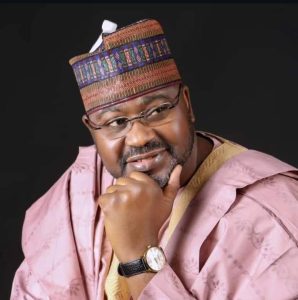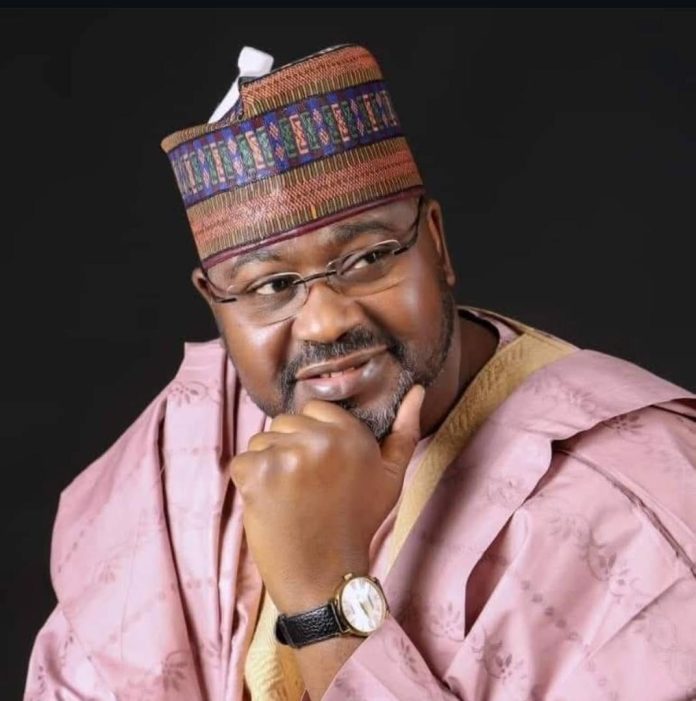
In the turbulent history of Nigeria’s power sector, where challenges often outweigh achievements, the name of Dr. Mohammed Wakil, OON, stands out as one of the public servants who sought to bring reform, vision, and renewed energy into the system. Wakil, a seasoned lawyer, political scientist, and one of Borno State’s distinguished sons, carved a career defined by service and the determination to address the structural bottlenecks that have long haunted Nigeria’s electricity supply.

Born on June 6, 1965, in Damboa Local Government Area of Borno State, Wakil’s path into politics and governance was marked by determination, intellectual grounding, and a belief in public service. He had earlier distinguished himself in the National Assembly as a legislator before his appointment as Minister of State for Power in March 2014, a role that placed him at the heart of one of Nigeria’s most critical sectors.
At a time when the Nigerian power sector was reeling from decades of underinvestment, poor regulatory frameworks, and erratic service delivery, Wakil worked to reposition the system through structural and policy reforms. He pushed for the strengthening of regulatory frameworks, ensuring that the generation, transmission, and distribution arms of the sector were better aligned with Nigeria’s privatization goals. His advocacy for gas-to-power projects underscored his understanding that Nigeria’s vast natural gas deposits could become the country’s energy lifeline if harnessed efficiently. Beyond grid power, Wakil paid attention to rural electrification, recognizing the urgent need to take energy access to communities often left out of national development.
A visionary beyond policy, Wakil stressed the importance of human capital in driving reforms. He initiated programs aimed at building technical capacity within the sector, investing in training and exposure to international best practices for Nigerian engineers and managers. His conviction was clear: without strengthening the people behind the infrastructure, the machines themselves would remain underperforming assets. Similarly, he pushed institutions in the power sector to become more efficient, transparent, and professional in their operations. His focus on coordination across regulatory bodies helped to streamline decision-making and reduce bottlenecks that often crippled project execution.
Perhaps one of Wakil’s most enduring contributions was his advocacy for public-private partnerships. At a time when Nigeria’s government resources were overstretched, he consistently argued that the private sector had both the capital and innovation to complement government efforts. Under his watch, greater effort was made to create an enabling environment for investment in generation, transmission, and distribution, giving both local and international investors a signal that Nigeria was open for energy business. This openness to partnership not only encouraged inflow of investment but also shifted the narrative of the Nigerian power sector from being a government monopoly to one of shared responsibility.
Beyond policy and investment, Wakil played a key role in elevating the power sector in national consciousness. He often reiterated that electricity was not just a utility but a backbone for national progress. He stressed its role in industrialization, job creation, education, healthcare, and poverty reduction. By placing the discourse on such a high plane, he inspired both policymakers and citizens to view energy reform as a shared national project rather than a technical problem for engineers alone.
Like many reformists who faced the complexities of Nigeria’s governance environment, Wakil’s tenure was not without controversy. Allegations of financial impropriety surfaced during and after his time in office, and some projects under his watch faced delays. Although certain legal cases were eventually dismissed, the shadow of accusations reflected the systemic problems of transparency in Nigeria’s public sector. Still, his determination to introduce reforms within a challenging system highlighted the resilience required of public servants. For many observers, the controversies, though noteworthy, did not erase the genuine policy thrusts and developmental ideas he brought to the table.
Years after his tenure, Dr. Mohammed Wakil’s impact continues to be felt. The frameworks he promoted for regulatory efficiency, his call for private sector involvement, and his insistence on energy access for rural communities remain pillars in Nigeria’s ongoing conversation about how to solve its electricity crisis. His story is also one of lessons: that reform in a deeply troubled sector requires persistence, political will, and constant innovation. Future leaders can draw from his emphasis on institutional strengthening and the recognition of electricity as the heartbeat of national growth.
Dr. Mohammed Wakil, OON, may not have solved Nigeria’s power challenges overnight, but he illuminated pathways toward solutions that remain relevant today. His tenure demonstrated that leadership in the power sector demands courage, vision, and the ability to see electricity not just as wires and turbines, but as a tool for nation-building. In a country still grappling with power shortages, his contributions serve as both an inspiration and a reminder that progress is possible with the right mix of policy, partnership, and persistence.
